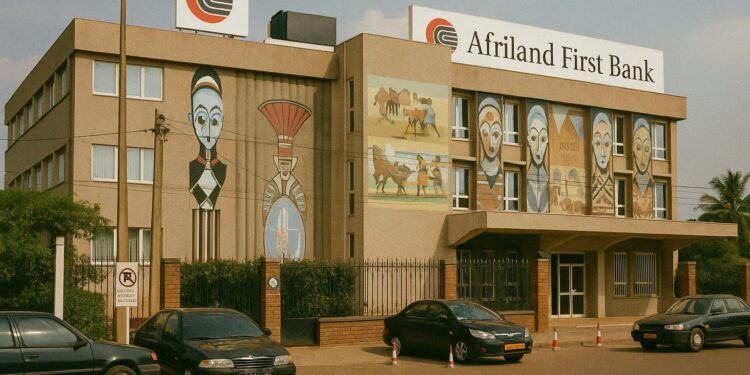A cross-border mandate worth CFA70 billion
The Treasury of the Republic of Congo has instructed eight Cameroonian banks accredited as Spécialistes en valeurs du Trésor to arrange a CFA70 billion (approximately US$120 million) issuance on the public-securities window of the Bank of Central African States. Draft documentation circulated in Douala and Brazzaville this week confirms that Afriland First Bank, Commercial Bank Cameroon, BICEC, Société Générale Cameroun, Ecobank Cameroon, UBA Cameroon, BGFI Cameroon and SCB Cameroun will act as joint lead arrangers. The syndicate is expected to market a mix of fungible Treasury bills and medium-term Treasury bonds over the next two quarters, in line with the auction calendar released by BEAC’s Agence UMOA-Titres.
Integration dividends inside the CEMAC bloc
While Brazzaville has tapped the BEAC platform since 2011, delegating the book-building to institutions headquartered in a fellow CEMAC member underscores the bloc’s push toward financial convergence. Regional policymakers have long argued that deep, cross-border order books are the missing link between the CFA franc’s monetary stability and effective resource mobilisation. One senior official at the BEAC headquarters in Yaoundé – speaking on background – notes that Congolese paper now routinely attracts bids from pension funds in Libreville and microfinance institutions in N’Djamena, an outcome that would have been difficult a decade ago.
Why Brazzaville prefers the regional window to global credit
Oil receipts remain the fulcrum of Congo-Brazzaville’s fiscal architecture, yet the volatility of Brent prices and the memory of a costly 2019 Eurobond restructuring continue to encourage on-shore funding. The most recent IMF Article IV report commended the government for substituting external commercial debt with local-currency issues, a stance perceived as safeguarding debt sustainability. Fitch Ratings, which maintained the sovereign at ‘CCC’ with a stable outlook in March, nonetheless flagged rollover risk; the present transaction aims precisely to elongate the domestic yield curve and smooth the maturity profile.
Cameroonian balance sheets in search of sovereign paper
For the participating Cameroonian banks, the mandate arrives at an opportune moment. The tightening bias adopted by BEAC – its main policy rate was raised to 5 percent in December – has rendered interbank liquidity costlier, nudging lenders toward high-grade sovereign assets that carry zero risk weighting under regional prudential norms. A treasurer at Afriland First Bank confirms that demand for CEMAC government bills ‘remains brisk, especially when coupons exceed the BEAC facility rate by 150 to 200 basis points.’ Early price guidance for the Congolese tranche hovers within that corridor.
Structuring the offer: maturities, coupons, settlement
According to a preliminary term sheet obtained from the Directorate-General of the Treasury in Brazzaville, the programme will be split into three lines: a 13-week bill, a two-year bond and a five-year bond. Settlement will be conducted through BEAC’s automated clearing system, with Afriland serving as lead settlement agent. Coupons on the bonds are expected to price between 5.75 percent and 6.25 percent, marginally tighter than Congo’s July 2023 five-year auction that cleared at 6.40 percent after a 152 percent subscription rate.
Macroeconomic backdrop: promises and caveats
Macro fundamentals lend cautious support to the deal. The 2024 finance law targets a non-oil primary surplus of 1.5 percent of GDP, underwritten by improved tax administration and continued rationalisation of fuel subsidies. Foreign-exchange reserves at BEAC covered 4.2 months of imports at end-2023, their highest level since 2014. Yet regional analysts warn that the withdrawal of extraordinary IMF support across sub-Saharan Africa could test investor sentiment. ‘Liquidity is available, but the market is scrutinising governance and transparency,’ observes economist Rosine Moukoko of the Central African Business Observatory.
Geopolitical resonance beyond the balance sheet
The transaction also carries a diplomatic undertone. President Denis Sassou Nguesso has repeatedly highlighted CEMAC solidarity as a pillar of his 2022-2026 National Development Plan. By entrusting Cameroonian intermediaries, Brazzaville signals confidence in a neighbour that hosts the bloc’s central bank and the Douala Stock Exchange, thereby reinforcing regional cohesion without resorting to headline-grabbing bilateral agreements. Cameroonian authorities, for their part, welcome the mandate as a testament to the country’s budding role as a financial hub linking Central Africa to the Gulf of Guinea’s blue-water trade lanes.
Prospects for a sustained Congolese presence on the BEAC market
The looming question is whether this CFA70 billion exercise will pave the way for a programme of rolling issues similar to Gabon’s serial bonds of 2022. Officials in Brazzaville hint that, subject to market appetite, a second tranche could follow in the third quarter, pushing annual domestic borrowing toward CFA150 billion. Market participants note that such continuity would improve secondary-market liquidity, permitting more accurate price discovery and benchmark creation. That, in turn, could enable regional insurers and pension funds to match long-dated liabilities with local assets, a prerequisite for deeper capital-market development in Central Africa.
A tempered but optimistic outlook
All told, Brazzaville’s decision to harness Cameroonian syndication capacity embodies both pragmatism and regional ambition. Success will hinge on disciplined execution, transparent reporting and sustained macroeconomic stewardship. Yet the early signals – robust order-book rumours, supportive oil prices and an improving fiscal stance – suggest that Congo’s latest foray may well secure the desired liquidity without straining its debt metrics. In the broader CEMAC narrative, the operation could serve as a case study in how home-grown capital can be mobilised for sovereign financing while nurturing financial integration, a goal increasingly championed across the sub-region.












































